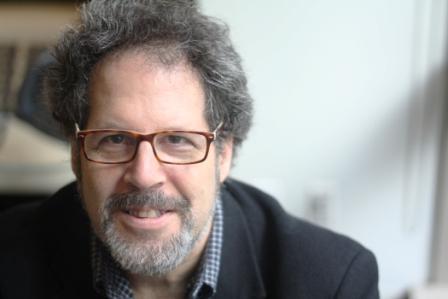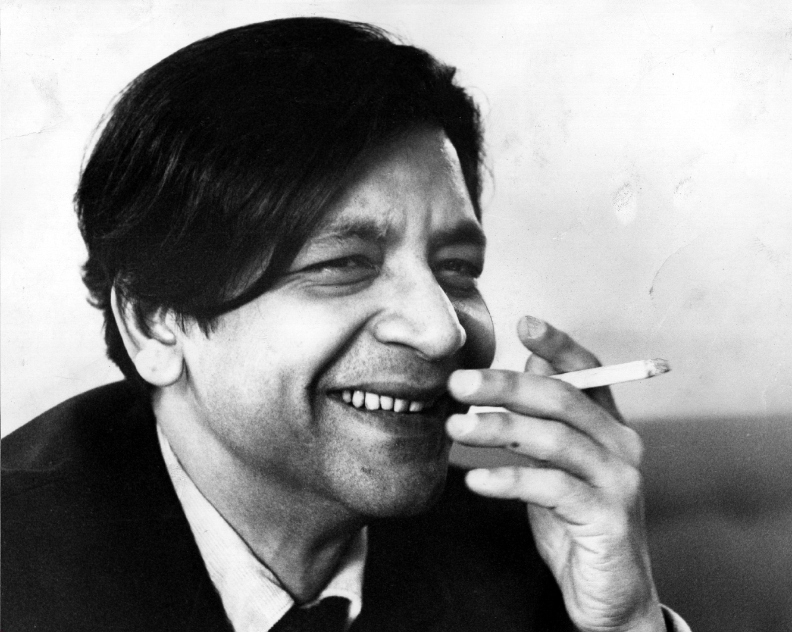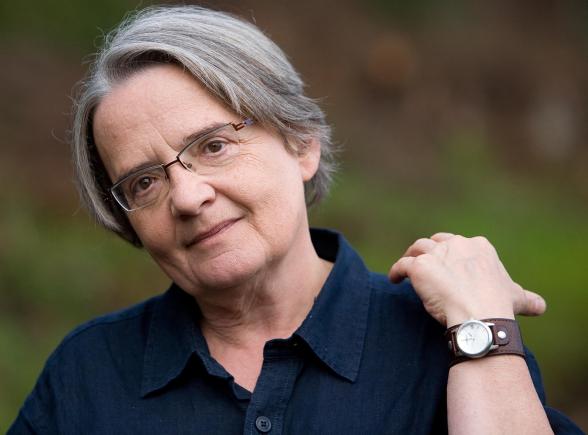Sara Benincasa appeared on The Bat Segundo Show #436. She is most recently the author of Agorafabulous.
Listen: Play in new window | Download
Condition of Mr. Segundo: Wondering whether or not he has actually left the house.
Author: Sara Benincasa
Subjects Discussed: How to get out of bed and leave the house, the unanticipated benefits of contextual noise, overstuffed schedules, voices inside one’s head, the picaresque existence, commitments and surprise, occupations that depend upon approval, the adventurous spirit within the urban domicile, “I Am a Rock,” mental illness metaphors, freakishness as a choice vs. those who are innately freakish, Lee Redmond‘s automobile crash, mania and obsession, envy towards freaks, long-distance walking and The Great Saunter, how one’s “normal” behavior is viewed by others as different, seeking willful disapproval, freaks and confidence, Tod Browning’s Freaks, the close alignment between educators and comedians, Sicily as “the Alabama of Italy,” American problems with geography, regional stereotypes, being part of The Other in New Jersey, punching one’s father, family fistfights, domestic violence, Benincasa’s migratory impulses, sustaining lasting friendships while moving from city to city, National Lampoon’s Vacation, F. Scott Fitzgerald, celebrity wordplay, deciding what real-life incidents and people can be reused in a memoir, writers who write for revenge, The Boston Phoenix‘s Thomas McBee, Jeanette Wells’s The Glass Castle, Kambri Crews’s Burn Down the Ground, needless humiliation through a writing platform, holding figures up for public ridicule, what Benincasa learned from blogging, revenge and negativity, working for untreated bipolar people, being treated like dirt while younger, deep needs for approval and love, growing up in a take-out family, Benincasa’s cooking progress, an itemization of the dishes Bennincasa can cook, scrambled eggs and kale salad, Alice Bradley, gaining weight on the road, being career-focused, lack of spare time, finding down time and blowing off steam, Stuff You Missed in History Class, Tara Brach, playing Dave Matthews over and over again, The Sound of Music, sound as a soothing sensation, giving away a giraffe, Momfidential, claiming adulthood at 31, being in touch with your inner child, peeing in bowls and urine constituency, memoirs written from a privileged position, outpouring and audience approval, Girl, Interrupted, discussing the complexities of Flemington, New Jersey, court reenactments of the Lindbergh trial, Bruno Hauptmann, the Lindbergh kidnapping trial vs. the Salem witch trials, supernatural powers and pining for mysticism, Weird New Jersey, WFAN, the decline of local radio show hosts, and the future of radio. Sirius XM, and online radio.
EXCERPT FROM SHOW:
Benincasa: I’m doing well. I mean, I got out of bed and out of my house.
Correspondent: You got out of bed?
Benincasa: I’m very excited.
Correspondent: How do you get out of bed?
Benincasa: Magically.
Correspondent: I mean, I think I got out of bed this morning. Obviously I met you here.
Benincasa: Yes.
Correspondent: But I obviously don’t know how I do it sometimes.
Benincasa: Well, you know what? I was awoken by a fire alarm going off in my building. Which as it turned out was just a test. But it was very exciting. And it motivated me to get up. Because like most people who deal with depression and anxiety and certainly agoraphobia, getting out of bed is sometimes a challenge. Getting out of the house is a challenge. But in this case, I was so rudely awakened that it was just great, actually. And I got to work on time. It was amazing!
Correspondent: So you need a contextual noise these days in order to get out of bed?
Benincasa: I need you to yell at me.
Correspondent: I mean, how difficult is it now for you? Just out of curiosity.
Benincasa: It depends. Most of the time, it’s all right. A lot of times, I wake up and my first thought is, “Oh no!”
Correspondent: Oh no?
Benincasa: Oh no! A day!
Correspondent: I don’t think you have to be agoraphobic to have that thought. (laughs)
Benincasa: That’s true. Absolutely. I think that’s more of a function of probably an existential crisis.
Correspondent: It’s the default setting for 21st century life.
Benincasa: Pretty much. But I think generally it’s a lot better these days. I feel more motivated. Especially with the book coming out. I found that it helps to keep extremely busy. Like to overstuff my schedule. Because that is a very strong motivating factor. The fear of disappointing someone.
Correspondent: Overstuff your schedule? Like how overstuffed would you say? Down to every hour booked?
Benincasa: Oh gosh. Not every hour.
Correspondent: Two hour blocks?
Benincasa: You know, I do a lot of writing. I write for vice.com and for newnownext.com, which is LogoTV’s gay site, and I write for xojane.com. And I write for a startup called bookish.com, a publishing startup. And then I make videos. And I travel. And I talk to colleges. And I do comedy. And so I really take on too much on purpose. Because it keeps the brain demons away.
Corespondent: Oh yeah. The brain demons. You allude to the voice saying “I want to die!” many times in the book. When was the last time you heard that voice?
Benincasa: Well, it’s interesting. Because in the book, I chose to personify these urges I was having. It wasn’t like having a voice outside my head. It wasn’t like having a schizophrenic break, where I was experiencing auditory hallucinations. But it was like — when you listen to yourself and you think, “I need to listen to my inner voice. What is my gut telling me to do?” But your gut is all screwed up. Because all the signals are messed up. Because your brain is crazy. So it was more like that. It was more like, “Okay. I want to die. Yeah. Definitely want to die.” It wasn’t that long ago. It was really like four or five months ago. It was when I was finishing the final edits on the book. And I was in a relationship that ended in a sense. Because the guy moved a couple of continents away.
Correspondent: This is a recurring experience in your life, based on the book. (laughs)
Benincasa: Like I said, I think I need a lot of activity to distract me from the demon voices or my inner struggles. So that relationship was certainly a distraction. And the book was certainly a distraction. And with both of those things coming to an end in one sense, I didn’t have these distractions. So I had to face what was actually going on. And I didn’t really like that. So hence that. So actually my editor at William Morrow was really great and very empathetic. And so I went home for a couple months to Jersey to just kind of get better and get my shit together. And my boss at Bookish was great too and let me work remotely. So that’s the benefit of being a freelance writer. You generally aren’t making enough money. But you can do it from anywhere.
Correspondent: And it’s good when you have situations like this. I mean, these migratory impulses of yours. I’m really curious. You were saying — I learned before we talked that you had made yet another move. And this is very much a picaresque tale.
Benincasa: Yes!
Correspondent: It takes us to Boston. It takes us to Asheville.
Benincasa: It’s like Moll Flanders.
Correspondent: Yes, I know.
Benincasa: Which I think is a picaresque.
Correspondent: Yes, yes.
Benincasa: Right. I think so.
Correspondent: I think Thackeray or someone along those lines was an impulse. Or Defoe. But I’m curious. Do you have difficulties often staying in one spot? Do you feel the impulse to flee sometimes?
Benincasa: Yes! I have trouble with commitment on many levels. Commitment sometimes to a person. Commitment to a place of residence. Commitment to a career.
Correspondent: I’m surprised that I got you to commit to this interview. (laughs)
Benincasa: Yes! I did! Very exciting. I decided to marry this interview.
Correspondent: Although it was last minute.
Benincasa: So it worked. A lot of times, the last-minute stuff works best for me.
Correspondent: So short-term commitment, okay. Long-term commitment?
Benincasa: I get surprised into committing.
Correspodnent: Surprised? (laughs)
Benincasa: I have to be surprised.
Correspondent: Being shocked and galvanized into committing.
Benincasa: Oh yeah. I’m really shocked.
Correspondent: To wake up. “Wow! I’ve been married to this guy for three years.”
Benincasa: Surprise! Oh great. I have a kid?
Correspondent: (laughs)
Benincasa: I have been surprised by my commitment to New York City. Because I’ve moved around quite a bit within New York City. But I’ve been here for six years. Six and a half years. And that to me is shocking. That I’ve spent that much time in one place. And so of course, I’m itching now and thinking about moving to Los Angeles or Asheville again or somewhere. But I don’t know what that is. I have a restless nature, I guess.
Correspondent: Is this why you have applied to jobs out-of-state over the years?
Benincasa: Oh yeah.
Correspondent: Hey, if the vocation takes me here, I can blame the job.
Benincasa: Exactly.
Correspondent: As opposed to my own decision.
Benincasa: Yeah. So that I can keep moving. Kind of like a shark that never stops moving. I don’t know if that’s a myth or true.
Correspondent: Or just a Woody Allen saying.
Benincasa: Or just a thing. Yeah. I find it necessary to just keep moving. Always keep busy. Always keep busy. And the upside of that is that I’ve got to have a lot of adventures and do fun things and meet a lot of cool people. And the downside is that eventually something does happen where you have to stop. And for me, when I’ve gone through a really deep-seated depression in my life, which has happened about three or four times, that has been just a screeching halt and has made me reflect on who I am and what I’m doing.
Correspondent: I was going to ask you about — I had one question just dissolve.
Benincasa: That’s okay.
Correspondent: As they sometimes do. But I wanted to ask you. I mean, here you are. You’re a comedienne, a freelance writer. These are occupations that depend very much sometimes — especially with comedians — on approval.
Benincasa: Yes.
Correspondent: And I’m wondering how you deal with this. Because if you have all sorts of inner demons committing you to self-loathing, so to speak — at least temporarily, short-term commitment — and you can’t get a laugh from an audience or you can’t get a gig, how do you deal with that? I mean, do you have a good support base?
Benincasa: I have a really good support system in the form of a pathologically approving family and supportive family.
Correspondent: Pathologically? (laughs)
Benincasa: A really disturbing, supportive…
Correspondent: They’ve never said a bad word about you. (laughs)
Benincasa: You know, sometimes, they should have.
Correspondent: Really?
Benincasa: There are times where they should have been more critical, but just sort of very, very loving. Very supportive. So there’s that. And then I also have some great friends. But yeah, I think we all come to — those of us who are comedians often come to comedy for reasons that are not entirely healthy. And sometimes it is out of a twisted desire to be held up for ridicule. Sometimes it is out of a desperate need for love and affection. That’s me. And other times, it’s for the high of performing. And for me, I don’t think I’m chasing that high. I think it’s more about affirmation. Which is kind of ridiculous. Because it’s a losing battle. Because no one is going to be liked all the time. No one is going to be approved of all the time. So I wouldn’t say it’s necessarily the most psychologically healthy choice for a career. But it is the choice that I’ve made at this point. And writing, I think, is so similar. Comedians are writers. We just tend to do our writing in notepads and then perform very short-form stories on stage.
Correspondent: Yes. My query that had dissipated into the ruminative mist has come back.
Benincasa: Ah, excellent!
Correspondent: And it was about this notion of adventures taking you away from home. I mean, you clearly have had adventures inside an apartment and so forth.
Benincasa: Oh yes.
Correspondent: So I’m wondering why you feel that the adventurous spirit is not necessarily there within an urban domicile.
Benincasa: Well, it’s a little boring when you’re just adventuring with your television set and your books and your comfort objects. I love the song “I Am a Rock” because, you know, “I have my books / And my poetry to protect me / I’m shielded in my armor.” And he refers to the room as a womb. And that really is how it feels. So I can go adventuring in my mind when I am in my apartment. But especially because I’ve had times in my life when I was afraid to leave, I find that I need to make myself leave. It’s this impulse. Perhaps that’s part of my wandering nature. If I can wander and not be afraid, it proves to me that I’m not a slave to my particular form of madness.
Correspondent: Yeah. You still feel very much enslaved by it? I mean, it seems that you’ve had some success.
Benincasa: Sure. Definitely.
Correspondent: You’ve managed to, at least, emerge unfettered to the microphones right here.
Benincasa: I don’t feel enslaved it. But it’s there. It’s kind of like the way people who are in recovery talk about their addictions. It’s something that they manage. But it’s not something that is cured. That’s how I feel about mental illness for me. Because if I don’t take good care about myself, doing basic things like sleeping enough and eating properly and making myself leave the house and acting against type — so acting against what my instincts are sometimes — it can come back. Or it’s like, I need to constantly — it’s like keeping your house clean so that mold doesn’t grow on the corners. Because it will do that if you don’t keep it clean. That’s sort of another metaphor that works.
The Bat Segundo Show #436: Sara Benincasa (Download MP3)



 There are so many unpardonable cruelties collected in Patrick French’s gripping (and authorized!) biography, The World Is What It Is, that it’s difficult to know where to start in condemning V.S. Naipaul’s boorish behavior, while also praising his prowess on the page. And yet I can’t quite do that either. I’ve read A Bend in the River twice, and I have to conclude that the book’s pat pronouncements about colonialism, even with the adept take on self-deception and willful naïveté, aren’t especially staggering. By the time the shopkeeper Salim shows his colleague Indar around the African town where he lives and reveals how little he knows (“All the key points of the town I knew could be shown in a couple of hours, as I discovered when I drove him around later that morning”), it was abundantly clear to me that he would never know.
There are so many unpardonable cruelties collected in Patrick French’s gripping (and authorized!) biography, The World Is What It Is, that it’s difficult to know where to start in condemning V.S. Naipaul’s boorish behavior, while also praising his prowess on the page. And yet I can’t quite do that either. I’ve read A Bend in the River twice, and I have to conclude that the book’s pat pronouncements about colonialism, even with the adept take on self-deception and willful naïveté, aren’t especially staggering. By the time the shopkeeper Salim shows his colleague Indar around the African town where he lives and reveals how little he knows (“All the key points of the town I knew could be shown in a couple of hours, as I discovered when I drove him around later that morning”), it was abundantly clear to me that he would never know. 
